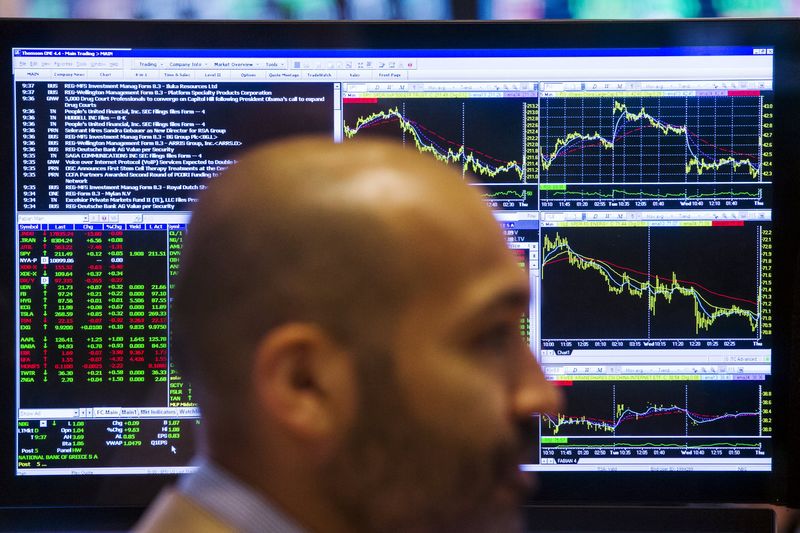This post was originally published on this site
https://i-invdn-com.akamaized.net/news/LYNXNPEB6U08A_M.jpg © Reuters.
© Reuters.By Tom Polansek
CHICAGO (Reuters) – Demand for U.S. meat at grocery stores will likely exceed supplies for at least another week, the chief executive of Tyson Foods Inc (NYSE:) told Reuters on Thursday, as the coronavirus pandemic fuels panic buying among shoppers.
Food manufacturers say overall meat supplies are ample to feed the millions of Americans hunkering down in their homes after state and local governments closed schools, bars and restaurants in an escalation of “social distancing” policies aimed at containing the virus.
But a surge in demand for products from chicken and beef to dry pasta at supermarkets has left store shelves and meat cases empty, alarming consumers.
“Once we are able to replenish supplies, which is probably going to take another week or so, then I think that we’ll be back in better equilibrium between supply and demand,” Tyson CEO Noel White said in an interview.
He later added: “In the short term, being a matter of weeks, there are some imbalances that exist.”
The “imbalances” are more demand than supply in sectors like retail stores, White said. The total amount of beef, pork and poultry available in the United States is up about 2% to 3% from last year, he said.
Orders for meat from grocery stores were significantly higher than usual through the weekend, after demand began to shift away from restaurants last week, White said.
“The demand hit very quickly,” White said. “The order fill rate has improved. It’s still not where we would expect it to be.”
Increased buying at supermarkets has lifted overall demand for meat, although the increase has been largely offset by reduced demand from restaurants, White said. Demand from casual dining restaurants, in particular, has suffered, though fast-food restaurants continue to benefit from strong drive-through traffic, he said. Tyson is the largest U.S. meat supplier and counts companies like McDonald’s Corp (NYSE:) as customers.
To meet increased retail demand, Tyson has shifted processing facilities to produce food for grocery stores instead of restaurants, White said. The company is running slaughterhouses at full capacity and on weekends, he said.
U.S. cattle futures have dropped sharply on concerns slaughterhouses will close if the novel coronavirus spreads among workers.
To avoid shutdowns, Tyson has begun taking employees’ temperatures at two processing facilities and is expanding the practice to all U.S. workers, according to the company. It expects deliveries of several thousand thermometers on Thursday, White said.
Fusion Media or anyone involved with Fusion Media will not accept any liability for loss or damage as a result of reliance on the information including data, quotes, charts and buy/sell signals contained within this website. Please be fully informed regarding the risks and costs associated with trading the financial markets, it is one of the riskiest investment forms possible.

